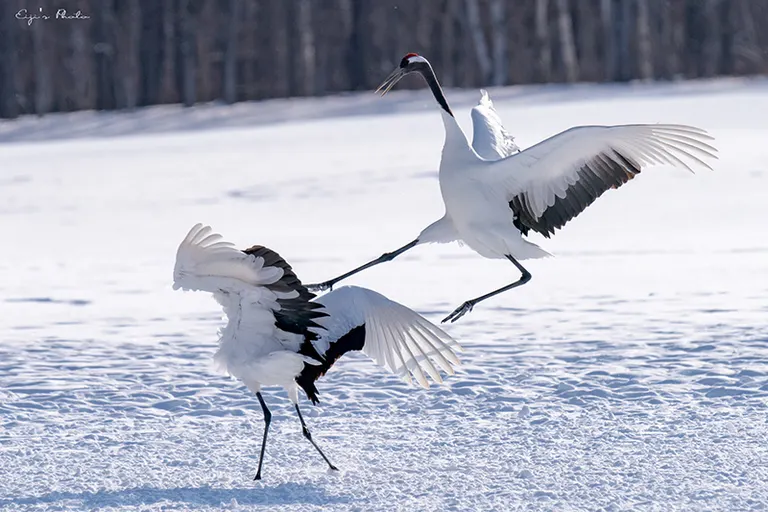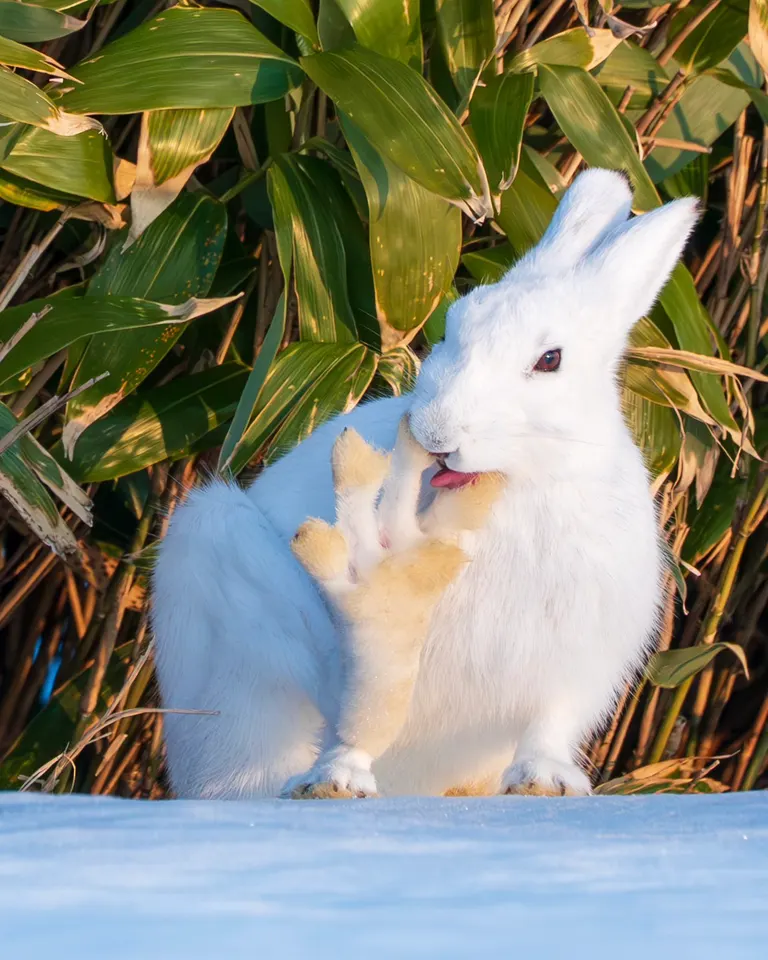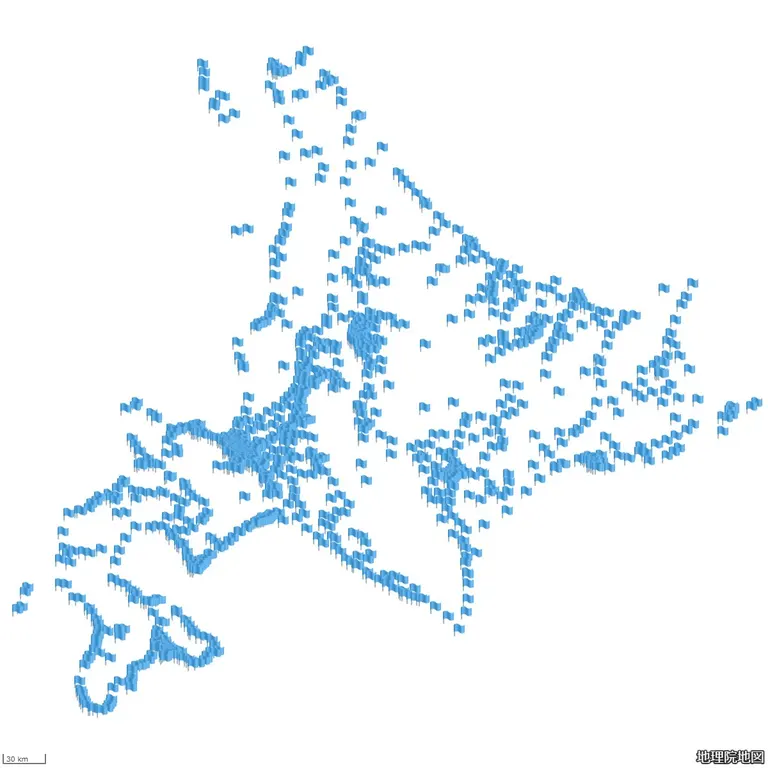![Work as an Extension of Life: Starting a Farming Career in Kuriyama and Sobetsu, Hokkaido [Job Salon of the Great Northern Land (2)]|Domingo](https://p1-634a4370.imageflux.jp/w=768,f=webp:auto,q=78/https%3A%2F%2Fdomingo.ne.jp%2Fwp%2Fwp-content%2Fuploads%2F2020%2F12%2F943df9de57c8a5115173c5942087100e.jpg)
ARTICLES
Work as an Extension of Life: Starting a Farming Career in Kuriyama and Sobetsu, Hokkaido [Job Salon of the Great Northern Land (2)]
The theme was "Farming," and the two guests are involved in agriculture in various parts of Hokkaido. We asked them about what led them to start farming in Hokkaido and their thoughts on their work and life.
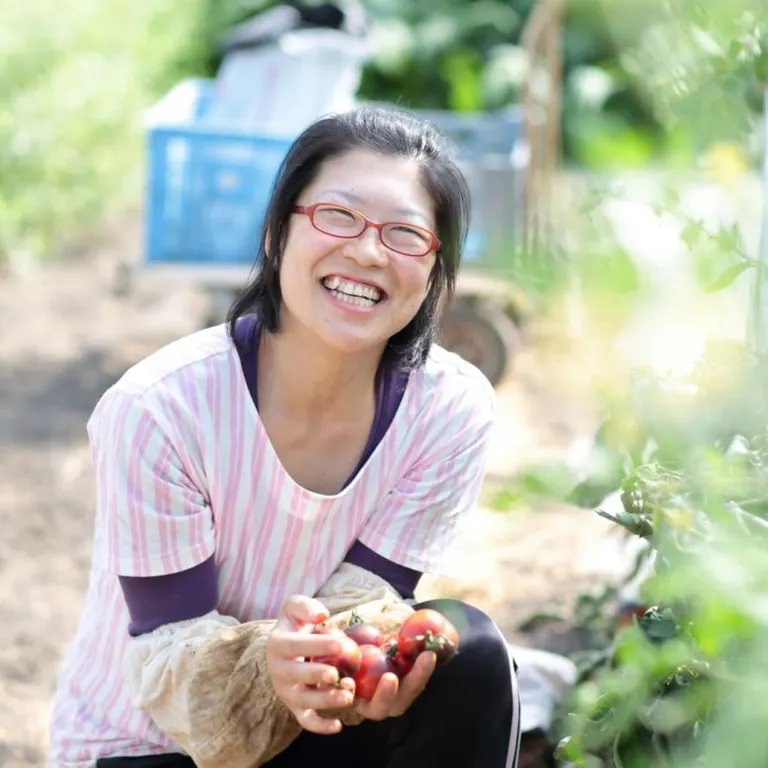 Kuriyama Town / Kubo Farm
Ms. Megumi Kubo
Kuriyama Town / Kubo Farm
Ms. Megumi Kubo
Originally from Hyogo Prefecture. She worked as a systems engineer in the Kansai region but left her job after the Lehman Shock. After agricultural training in Shikaoi, Hokkaido, and working as a farm helper in Furano, she became a trainee at an agricultural production corporation in Kuriyama Town. Supported by the local community, she started her own farm in the spring of 2014 with the minimum required acreage after two years of training.
How I Started Farming in Kuriyama Town
The catalyst for my decision to pursue agriculture was the 2008 Lehman Shock.I wanted to run my own business, so I quit the company where I worked as an electrical circuit design engineer.
Then, in 2010, I participated in the New Farmers Fair.
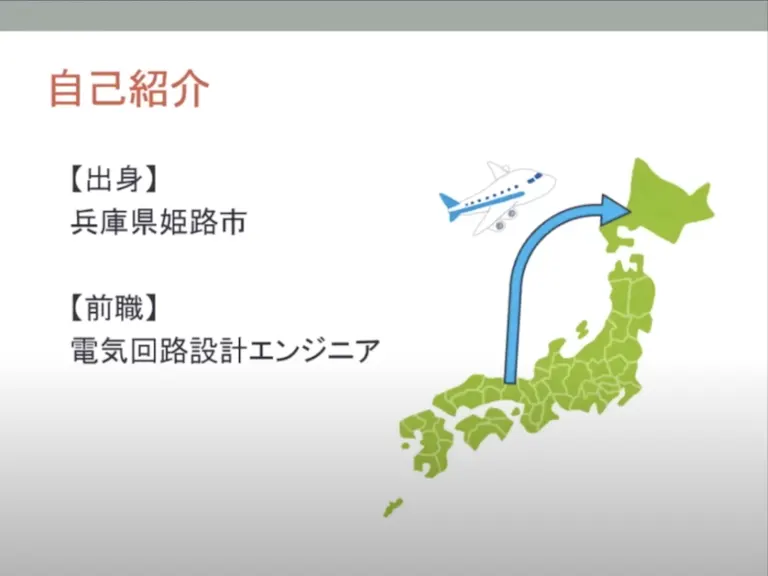
I knew nothing about agriculture in Hokkaido, but I love baking bread and thought, "It would be great if I could make bread with wheat I grew myself," so I visited the Hokkaido booth.
There, I was introduced to the "Pure Malt Farming Training Program" in Shikaoi Town, and for three months from August to October of that year, I underwent agricultural training there.
Through that training, I felt that agriculture was my true calling and became determined to make it my profession. I returned home temporarily to attend driving school, where I upgraded my automatic-only license and obtained a license for large special-purpose vehicles.
In 2011, I visited Hokkaido again and worked as a farm helper in Furano City through a program organized by the agricultural cooperative. This solidified my desire to farm in Hokkaido, and I began searching for a municipality that would accept a single person.
Someone with connections to Kuriyama Town introduced me to the area. I visited for the first time, fell in love with the town's atmosphere and its people, and decided to do my training there.
The Hardest Part of Starting a Farm
It was difficult to gain the understanding of those around me, as there was no precedent for a single woman starting and managing a farm on her own.Around that time, I visited "Bochi Bochi Farm" in Bihoro Town, which was started by two women.
They encouraged me, saying, "If you're serious, gender doesn't matter." This strengthened my resolve to pursue farming.
It took a while to get everyone on board, but in my second year of training, I bought a new kei truck (a light-duty truck). By showing my enthusiasm and commitment to farming, people around me eventually relented, and I was finally able to start my own farm.
I rented 50 ares of farmland, including four greenhouses, from my training provider and began my farming operation.
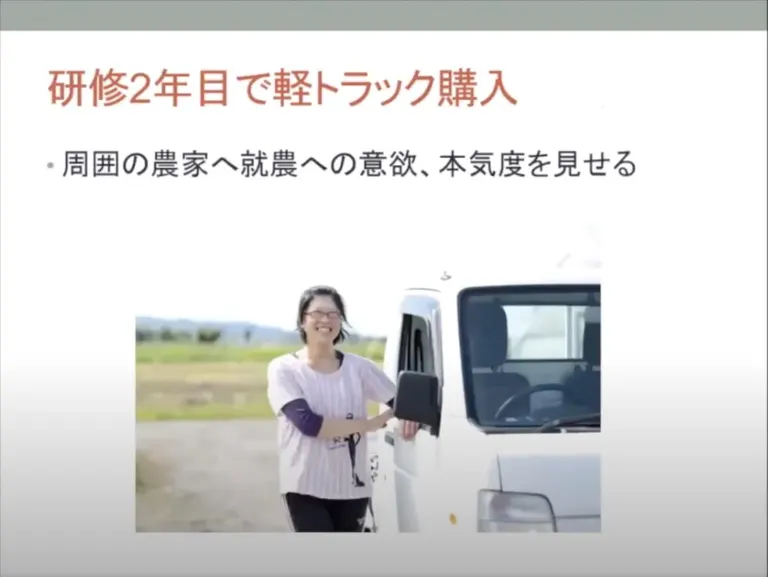
The Cost of Starting a Farm
I used my savings from my time as a salaried worker as my own capital.I received an annual grant of 1.5 million yen from the government through the Investment Fund for the Next Generation of Farmers (then called the Grant for Young Farmers) for two years of training and the first five years of farming.
Fortunately, my training provider lent me all the machinery I needed at first, which significantly reduced my initial burden.
What I'm Growing Now and Future Prospects
Currently, I mainly grow cucumbers, asparagus, and garlic, which I ship to direct sales depots, JA (Japan Agricultural Cooperatives), and supermarkets.In my third year of farming, I bought a house, expanded my farmland, and returned the greenhouses I had been borrowing.
From spring to autumn, I work outdoors from sunrise to sunset. In winter, I help out at restaurants and livestock farms.
My sales haven't been growing much, so in the future, I want to increase sales and try my hand at sixth-sector industrialization (integrating production, processing, and sales).
The Appeal of Farming
・You can live on your own time.If you're an independent farmer, how you use your time is up to you, which offers a lot of freedom.
・Life and work overlap.
There's no division between life and work, which means no stress. When I was a salaried worker, I had to switch modes between home and the office, but now there's no such duality.
・You become healthier and stronger, both mentally and physically.
When I worked as an engineer, I felt surrounded by inorganic things and had no opportunity to interact with living creatures.
In Tokachi, there was life everywhere. The organic world—the grass, trees, animals, and insects—all seemed to sparkle.
There are no lies in nature, and there were no lies in the farmers either. I truly believe this is my calling.
My message to everyone aspiring to start farming is:
・Don't give up.
・Return to your original intentions.
・Do the kind of farming you love.
I think these things are important.
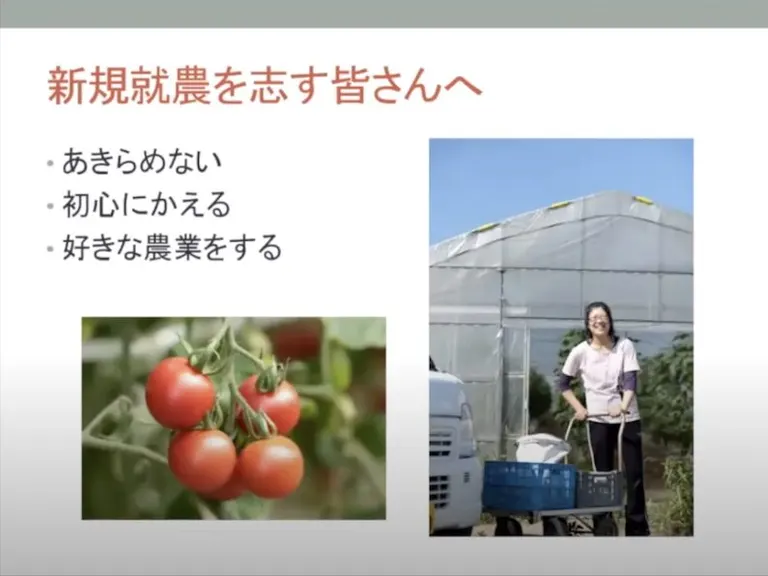
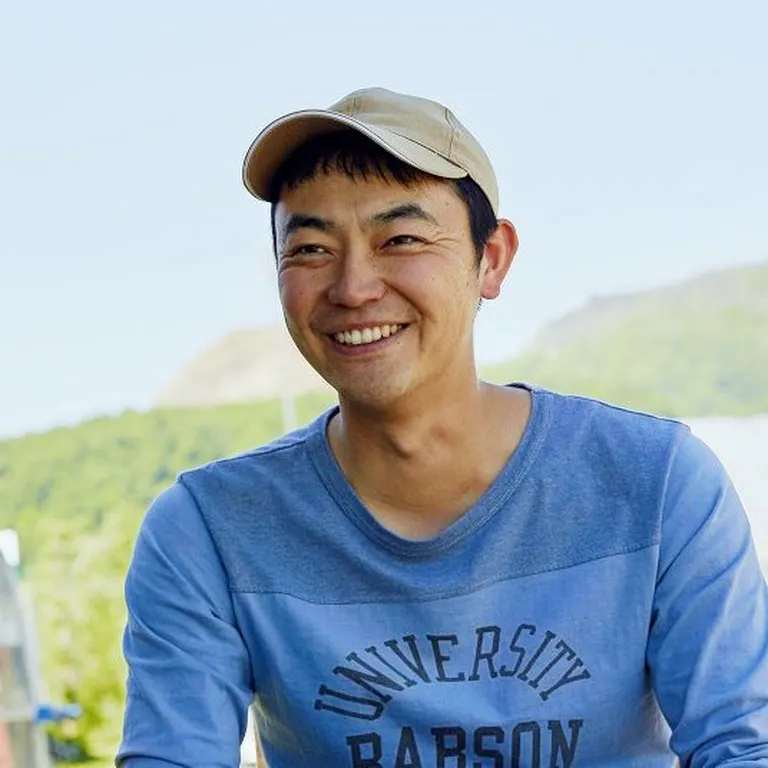 Sobetsu Town / Daisaku Farm
Mr. Daisaku Kimura
Sobetsu Town / Daisaku Farm
Mr. Daisaku Kimura
Originally from Toyako Town. After graduating from university, he worked as an agricultural trainee at an agricultural corporation in Date City for two years. While looking for a way to start farming with no savings, he learned about a support system for new farmers in Sobetsu Town, where his high school is located. After a year of training in the town, he started as a tomato farmer in 2009. He grows a wide variety of cherry tomatoes with a focus on soil preparation, and his "cherry tomato picking" has become popular.
How I Started Farming
Sobetsu is a town of agriculture and tourism, blessed with magnificent nature, including Lake Toya, Showa Shinzan, and Mount Usu.It's a small town with a population of about 2,500, and I chose Sobetsu not just for its wonderful nature, but because the people are truly amazing.
I was born and raised in Sobetsu in 1984. However, I came from a salaried worker's family and had no connection to agriculture.
From elementary school, I found it painful to sit through classes, and that didn't change in junior high.
When choosing a high school, I attended an open day at Sobetsu High School, an agricultural school. I heard that half the day was spent on practical training outdoors, and since I disliked classroom learning, I decided to go there.
That was my motivation for choosing an agricultural high school, but it turned out that farming was a great fit for me. Even though I disliked studying, I wanted to learn more about agriculture.
Until then, I had never considered going to university, but my desire to study agriculture led me to enroll in the Department of Agricultural Economics at Rakuno Gakuen University in Hokkaido.
I thought, "I want to work in an agriculture-related field in the future," but that wasn't limited to being a farmer, so I explored various paths for four years.
During my studies, I decided I wanted to be a teacher at an agricultural high school, so I obtained my teaching certificate and did my student teaching.
However, as I studied agriculture for my certification, I was reminded of the breadth of the field and the depth of each aspect.
When I imagined myself standing in front of a class, I felt I hadn't studied enough to say, "This is agriculture."
From there, I decided to go to a farm to learn about agriculture firsthand.
I spent all my long university holidays working and living on farms. Through this experience, I thought, "Maybe the right path for me is to farm and share my knowledge as a teacher of the fields." I had passed the first round of the teacher employment exam, but I made a major shift in direction and decided to become a farmer.
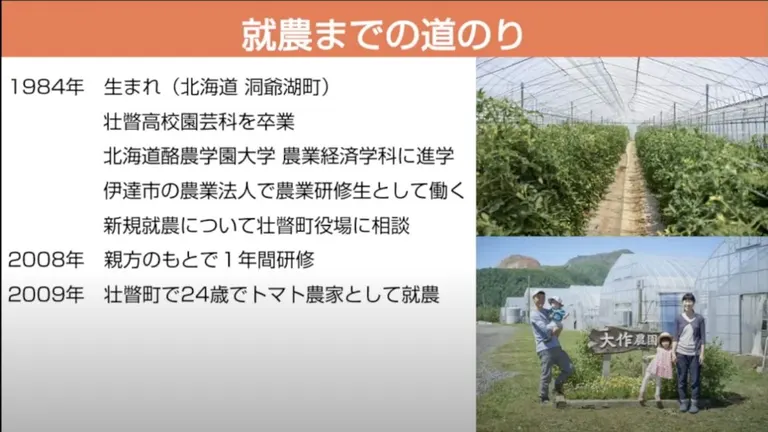
Why I Chose Sobetsu Town
I chose Sobetsu because I wanted to be involved in farming all year round.In regions with harsh snow and cold, some farmers have to find work elsewhere in the winter, but I wanted to grow crops throughout the year. I decided to look in the "Donan" (Southern Hokkaido) area and consulted with the new farmer support desks in several municipalities.
They always asked me, "Do you have any personal funds?" and "Do you have a spouse?"
However, I had been working as an agricultural trainee for two years on a salary of about 100,000 yen a month, so I was in no position to save money. My savings were zero.
I was confronted with the reality that I couldn't start farming without my own capital, and I considered saving money for a few years.
But I was 23 at the time and had a strong desire to start farming as young as possible.
Farming is a year-round job, and you only get to experience each season once a year. So, even if you do it for 80 years, you might only have about 50 seasons of experience.
My goal was to become a master farmer, so I wanted to start my training as early as possible. I searched for a town where I could start without personal funds.
That's when I went to consult with the new farmer support desk in Sobetsu Town.
Until then, I had only been asked about money and a spouse, but in Sobetsu, they valued my enthusiasm and youth. They told me, "If you're motivated, give it a try." After that, I found a mentor, became a farmer at 24, and have been farming for 11 years now.
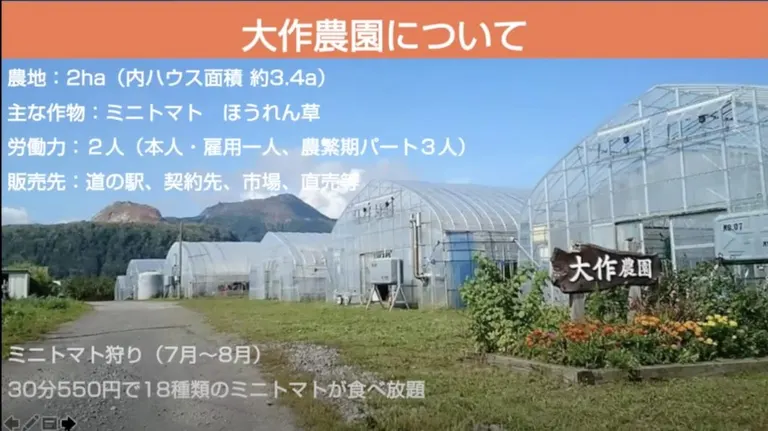
Hardships
I may make it sound like a selling point that I started with no personal funds, but I struggled a lot. So, when people come to me for advice, I always tell them, "You should definitely save up some money before you start."Almost no one succeeds from the beginning, and I made plenty of mistakes myself. There were times when I struggled just to make ends meet.
Also, the lack of a clear boundary between work and personal life caused a lot of hardship for my wife.
We have four children, and my wife was busy with childbirth and raising them, so there was a time when I was overworking myself, doing most of the farm work alone.
I realized this couldn't continue and have been trying to find ways to improve the situation.
The Rewards and Appeal of Farming
Being able to live on your own time and having your life and work integrated is a wonderful thing.However, for the first four or five years of farming, I didn't have the luxury to think about such things.
The reason I was able to persevere through the many hardships was the help from the people of Sobetsu.
Sobetsu is a small town, so when a new farmer arrives, you stand out. Everyone in the community knows you, but you don't know anyone.
I didn't like that situation, so I made a point of showing up to every local get-together and meeting.
That's how I got to know everyone in town. Among them were many master farmers who lent me machinery and taught me all sorts of things. Thanks to them, I tried growing rice for the first time this year and produced a good crop.
Even non-farmers have supported me by buying my rice and vegetables.
That's why I believe that integrating into the local community is the most important thing when starting a new farm.
Also, at Daisaku Farm, we offer cherry tomato picking because we want to interact with consumers.
Even in 2020, during the COVID-19 pandemic, the number of visitors has increased, and I find that very rewarding.
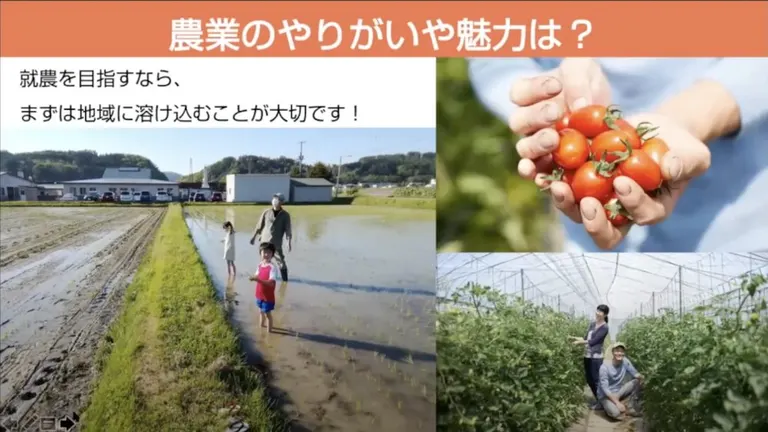
Conclusion
This time, we heard from Ms. Kubo, who started farming in Kuriyama Town, and Mr. Kimura, who started in Sobetsu Town.Both are wonderful individuals who feel a strong sense of pride and fulfillment in their work as farmers. They have broken down the barriers between life and work and are constantly striving to improve as farmers.
If you're interested in getting involved in agriculture in Hokkaido or want to hear more stories, why not take the first steps toward making your dream a reality by participating in an online event or consulting with a local municipality?
The next "Job Salon of the Great Northern Land" will be the "Fisheries Edition."
It will be held on Saturday, December 19th, from 2:00 PM. Please register from the link below!
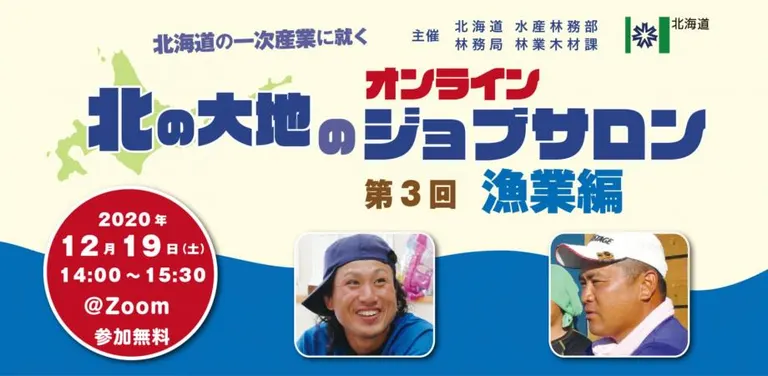
Job Salon of the Great Northern Land, 3rd Edition: Fisheries
Click this image to register.






